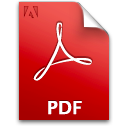Introduction
The emergence of Decentralized Autonomous Organizations (DAOs) has revolutionized the landscape of digital governance and blockchain technology. In this context, the use of Cayman Islands foundations presents a strategic advantage for facilitating the operational efficiency and regulatory compliance of DAOs. Cayman foundations, as flexible legal entities, provide a robust framework that harmonizes the objectives of decentralized governance with essential legal recognition.
One of the primary benefits of utilizing a Cayman foundation in conjunction with a DAO is the ability to establish a distinct legal entity that can hold assets on behalf of the DAO. This segregation of assets enhances the protection of stakeholders’ interests while fostering transparency and accountability. Furthermore, Cayman foundations benefit from a stable regulatory environment, characterized by tax neutrality and straightforward compliance requirements, enabling DAOs to operate with greater confidence and agility.
Moreover, establishing a Cayman foundation can aid in addressing legal ambiguities surrounding DAOs, particularly regarding liability and governance structures. By integrating a foundation model, DAOs can effectively implement corporate governance mechanisms, thereby attracting institutional investment and fostering wider participation. As such, the synergetic relationship between Cayman foundations and DAOs exemplifies an innovative solution to the legal challenges faced by decentralized governance frameworks.
Key Benefits of a Cayman Foundation in relation to a DAO
A Cayman foundation can enhance the governance and decision-making processes of a Decentralized Autonomous Organization (DAO) in several key ways:
a) Legal Personality and Structure
- Establishing Legal Framework: A Cayman foundation provides a recognized legal entity that can hold assets, enter contracts, and engage in legal proceedings. This can enhance the credibility of the DAO and give stakeholders confidence in its operations.
- Clarifying Governance Structure: The foundation can serve as the formal governance body of the DAO, defining roles, responsibilities, and decision-making processes in a clear and transparent manner.
b) Asset Management
- Holding Assets: The foundation can hold and manage digital assets and funds on behalf of the DAO, which can streamline financial operations and enhance security.
- Compliance and Regulation: It can ensure compliance with local and international regulations regarding asset management, which helps in maintaining operational legitimacy.
c) Enhanced Governance Mechanisms
- Hybrid Governance Models: A foundation can introduce a hybrid governance model that combines decentralized decision-making with centralized oversight for specific matters, enabling more nuanced and effective governance.
- Charter and Bylaws: The foundation can establish bylaws that outline governance practices, voting mechanisms, and conflict resolution processes, which can help mitigate disputes and provide a structured decision-making framework.
d) Access to Traditional Financial Systems
- Banking and Payment Solutions: A foundation can facilitate relationships with traditional banking institutions, enabling the DAO to access fiat currency solutions and payment systems, which are often essential for operational needs and treasury management.
- Funding Opportunities: It may also provide opportunities for raising funds through traditional investment channels, which can help in scaling DAO operations.
e) Access to Traditional Financial Systems
- Formal Dispute Mechanism: The foundation can act as a mediator in disputes that arise within the DAO, offering a structured process for resolution and diminishing the risk of conflict stalling the organization’s progression.
f) Professional Management and Expertise
- Access to Expertise: By having a foundation, the DAO can attract and retain legal, financial, and operational expertise to guide its activities and help make informed decisions.
- Advisory Committees: The foundation can establish advisory committees consisting of experts in various fields to provide insights and contribute to high-quality decision-making.
g) Stakeholder Engagement
- Structured Communications: A Cayman foundation can provide a framework for stakeholder engagement, ensuring that communication channels are clear, and input from all relevant parties is systematically collected and addressed.
- Representation: The foundation can act as a representative or liaison for the DAO in dealings with external parties, enhancing communication and trust.
h) Regulatory Compliance and Transparency
- Regulatory Filings: The foundation can manage necessary regulatory filings and compliance requirements, which can enhance trust and transparency in the DAO’s operations.
- Transparency in Operations: By implementing transparent governance practices and financial reporting through the foundation, the DAO can instill greater confidence among its stakeholders.
Conclusion
Incorporating a Cayman foundation into the structure of a DAO can bridge the gap between the decentralized nature of blockchain technology and the need for formal governance and legitimacy in the traditional legal framework. This hybrid approach can enhance overall governance, facilitate decision-making, increase operational security, and ultimately lead to more effective and sustainable DAO operations.
This publication is intended to merely provide a brief overview and general guidance only and is not intended to be a substitute for specific legal advice or a legal opinion. For more specific advice on the above matters, please contact us at enquiries@hcsoffshore.com
| Hermes Corporate Services Ltd.
5th Floor, Zephyr House, 122 Mary Street, George Town, Grand Cayman, Cayman Islands. |
enquiries@hcsoffshore.com www.hcsoffshore.com |
 English
English
